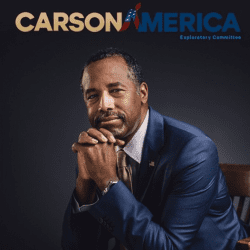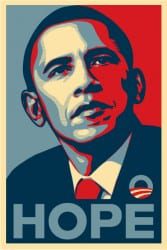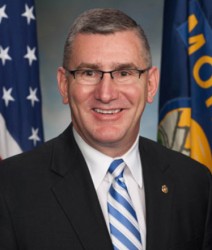How to Make a Political Plagiarism Scandal
 In January of this year, a full 10 months ago, Ben Carson’s campaign was rocked by a plagiarism scandal.
In January of this year, a full 10 months ago, Ben Carson’s campaign was rocked by a plagiarism scandal.
He was accused of plagiarizing from several sources in his 2012 book, America the Beautiful: Rediscovering What Made This Nation Great, a book where he admitted that he had been caught plagiarizing in college where he was given a chance to rewrite the paper it was discovered in.
Carson apologized for the plagiarism and said that he was going to work with his editors to “rectify” the situation.
But while the scandal received some interest, it didn’t gain much traction. At the time, Carson had not even announced his Presidential candidacy (something he would do in May) and he wasn’t considered a front-runner at that time.
Fast forward to November, Carson’s fortunes have definitely changed. A front-runner for the Republican nomination, Ben Carson has faced renewed scrutiny from all sides, including his plagiarism scandal.
Many news sites, in particular political sites operated by political opponents, have latched on to the scandal and are reporting it as if it were new. This has resulted in new social media posts on the topic.
But, if you look at the tweets on the topic, it becomes clear that it never really went away, seeing at least a few tweets almost every day.
With so much attention being paid to the plagiarism, why hasn’t the scandal done more to dent Carson’s prospects? To answer that,we have to look back at plagiarism scandals past and figure out what exactly it takes to make an effective political plagiarism scandal.
Looking Back to 2008
 2008 was a banner year for plagiarism scandals. In the run up to the U.S. Presidential election, Obama, Biden and McCain all faced accusations of plagiarism.
2008 was a banner year for plagiarism scandals. In the run up to the U.S. Presidential election, Obama, Biden and McCain all faced accusations of plagiarism.
In the cases of Obama and McCain, the scandals were pretty much overplayed, honest mistakes and accidents played up to be ethical failings. Though the Obama plagiarism scandal remains a popular article on Plagiarism Today (with many incoming links from political opponents), both scandals largely died off.
Biden was the exception. A plagiarism scandal had already sunk his 1987 Presidential campaign and the wounds were reopened when Obama picked him as his Vice President. However, in 2008, the scandal itself was 20 years old with other allegations of plagiarism on college 40 years old. With the absence of new allegations, the plagiarism issue did not become a major factor for Biden.
But that doesn’t mean people didn’t try. All three of those articles were heavily trafficked over the course of the election with almost every link coming from political opponents. Much as we’re seeing with the Ben Carson scandal now, there was a never-ending attempt to push the scandals into the mainstream conscious, including repeatedly claiming them to be new.
But those scandals all died off without having much impact, despite countless attempts to use them as political levers. Why that’s the case may create a blueprint for the plagiarism scandal of the future.
Looking to Senator John Walsh
 John Walsh was appointed to the Senate in 2014 to represent Montana after Senator Max Baucaus was appointed the Ambassador to China. When the election came around later that year, Walsh was already an endangered politician but, in July, his political career was done in by a plagiarism scandal.
John Walsh was appointed to the Senate in 2014 to represent Montana after Senator Max Baucaus was appointed the Ambassador to China. When the election came around later that year, Walsh was already an endangered politician but, in July, his political career was done in by a plagiarism scandal.
In 2007 Walsh received a masters degree from the Army War College based largely on his 20-page thesis, “The Case for Democracy as a Long-Term National Strategy”. However, an analysis of the thesis found that more than 3/4 of it was plagiarized.
The resulting scandal forced Senator Walsh to withdraw the from the campaign and eventually have his degree revoked.
It was later revealed that political opponents of Walsh leaked the story to the New York Times at what they felt was the most opportune time, ensuring that it did the most damage possible to his campaign.
If that was the plan, it certainly seemed to work.
Brewing a Good Political Plagiarism Scandal
When it comes to a political plagiarism scandal (or almost any other political scandal), there are typically two groups involved:
- Political Opponents: Political opponents typically uncover the alleged plagiarism and try to push it out there through blog posts, social media and elsewhere.
- The Broader Public: Outside of that particular group is a broader electorate that will either take up the scandal and let it impact how they view the politician or will simply ignore it.
The first group is largely irrelevant other than as messengers. As political opponents, they weren’t going to vote for the candidate regardless. The scandal has to convince others that they shouldn’t vote for them either to have any impact.
So why is it then that some scandals, like Walsh’s, reach that broader audience and have a real impact while others seemingly go nowhere? Well, there are four factors in making a political plagiarism scandal:
- Vulnerable Candidate: Walsh and 1987 Biden were both both vulnerable candidates. Though Walsh was technically an incumbent he had only been in office for a few months and Biden was already at the back of the pack. In both cases, the scandal was more the last straw than a major derailing.
- Timing: Carson’s scandal came out before he’d announced his candidacy and a year before any primaries. Meanwhile, Walsh’s was just months before the final election. A poorly timed scandal simply slips to the back of the mind before the polls open, reducing the impact.
- Severity of the Scandal: Plagiarizing 3/4 of your graduate thesis is obviously much more severe than a few lines from a speech. For a plagiarism scandal to “stick” it needs to be fairly severe. It has to be well beyond what one could call accidental and flagrant enough to show a significant ethical failing.
- No Larger Scandals: The nature of U.S. politics is that candidates are called a wide variety of names and accused of a variety of horrible acts, both with and without merit. Accusations of plagiarism, for some candidates, may not even be a blip on the radar.
Basically, a plagiarism scandal only has a significant impact if all of the stars align. However, as we see on Twitter and the stats of this site, that doesn’t stop people from trying over and over again.
Bottom Line
Over the next year, I fully expect there to be more political plagiarism scandals. Not only are we heading into a Presidential race but the entire House of Representatives, a third of the Senate and many governors are up for election as well.
Plagiarism WILL be a factor in 2016.
How much of a factor we will have to wait and see but, if the stars do align, we could see one or more races seriously altered by a plagiarism scandal.
For candidates, this is a warning: Make sure your books, speeches, websites and any other material you put out attributes its sources correctly. If you don’t, you could be handing your opponents ammunition that they can and will use against you.
While that ammunition may not change the course of the election, as the Carson scandal shows us, such allegations never really go away. They just remain constant vectors of attack, potentially for the rest of your political career.
Want to Reuse or Republish this Content?
If you want to feature this article in your site, classroom or elsewhere, just let us know! We usually grant permission within 24 hours.
